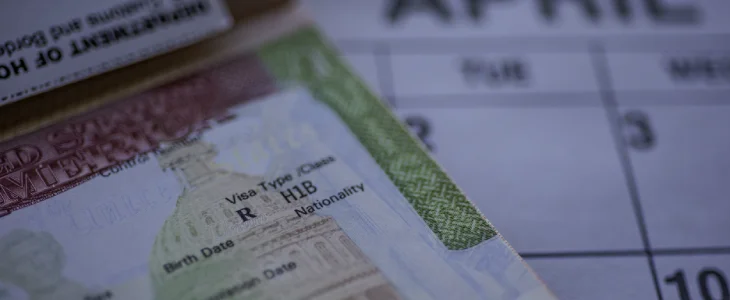If you’ve submitted a visa application and are unsure whether you can stay in the U.S. while it’s being processed, you’re not alone. We hear this question from people all the time—students, workers, visitors, and families who are doing their best to follow the rules but feel stuck in limbo. The truth is, the answer depends on your current immigration status, the type of visa you’re applying for, and how your case is being handled.
At Yaqubie Law, we help people throughout New York find clarity in situations like these. While immigration law can be complex, staying informed and taking the right steps can make all the difference.
Current Status Matters: Are You in the U.S. Lawfully?
Before anything else, it’s important to consider how you entered the U.S. and whether you’re still here lawfully. Your ability to remain while a visa application is pending often hinges on your current status.
If you’re in the U.S. on a valid visa, such as a student visa, work visa, or visitor visa, and you apply for a change or adjustment of status before that visa expires, you may be allowed to stay while your new application is reviewed. However, you must continue to follow the terms of your current visa. That means:
- Don’t overstay your permitted time
- Avoid unauthorized work
- Maintain any required enrollment or employment
If you’re already out of status or overstayed your visa, your situation becomes more difficult, and there may be a risk of removal. That’s why timing and legal guidance are so important.
What Kind of Visa Are You Applying For?
Not all visa applications are treated the same. Whether you can stay depends on what you’re applying for and whether your case qualifies for something called a “pending status.”
Here are a few common examples:
- Adjustment of status (Form I-485): If you’re applying for a green card from within the U.S., you may be able to stay while USCIS reviews your application.
- Change of status (Form I-539): If you’re switching from one type of visa to another (e.g., from F-1 student to H-1B worker), you may remain as long as your application was filed before your current status expired.
- Extension of stay: If you’re asking for more time on your current visa, you might be able to stay during the review period.
Each of these comes with specific requirements. Some allow you to stay legally while your application is pending. Others may leave you in a gray area. That’s why it’s important to understand what applies to your situation—and not assume the same rule fits everyone.
Options While You Wait
If your visa is about to expire but you’ve submitted a timely application, you may have some flexibility.
Here are a few measures that can help protect your ability to stay:
- Filing on time: Submitting your application before your current status ends can give you a temporary safeguard.
- Receipt notices: When you submit an application to USCIS, you’ll usually receive a receipt notice (Form I-797). This confirms your application is in process.
- Grace periods: Certain visa categories, like F-1 students, may allow a brief grace period after program completion or termination.
But be careful—traveling outside the U.S. while your application is pending can create problems. In some cases, it may be treated as abandoning your application. Always check with an immigration attorney before making travel plans.
Risks of Staying Without Status
If you stay in the U.S. without a valid immigration status, even by accident, there can be long-term consequences.
Some of the risks include:
- Accruing unlawful presence: This can lead to re-entry bans of three or ten years depending on how long you remain out of status.
- Impacting future applications: USCIS may deny future visa or green card requests if you have a history of unlawful presence.
- Ineligibility for benefits: You may not be able to work legally, renew a visa, or obtain other protections.
We understand how easy it is to get confused by the rules or to believe that filing something with USCIS means you’re automatically protected. Unfortunately, that’s not always the case. A pending application does not always mean you’re authorized to stay.
How We Can Help
If you’re unsure about your visa status or have a pending application, we’re here to help you make informed decisions. At Yaqubie Law, we work closely with individuals and families across New York who are dealing with these exact questions.
We can review your current status, explain your options clearly, and help you take the right next steps to stay compliant with immigration law. Whether you’re filing for the first time or trying to avoid problems down the road, let us take some of the stress off your shoulders. Call us today to schedule a consultation. Let’s work together to figure out your best path forward.



